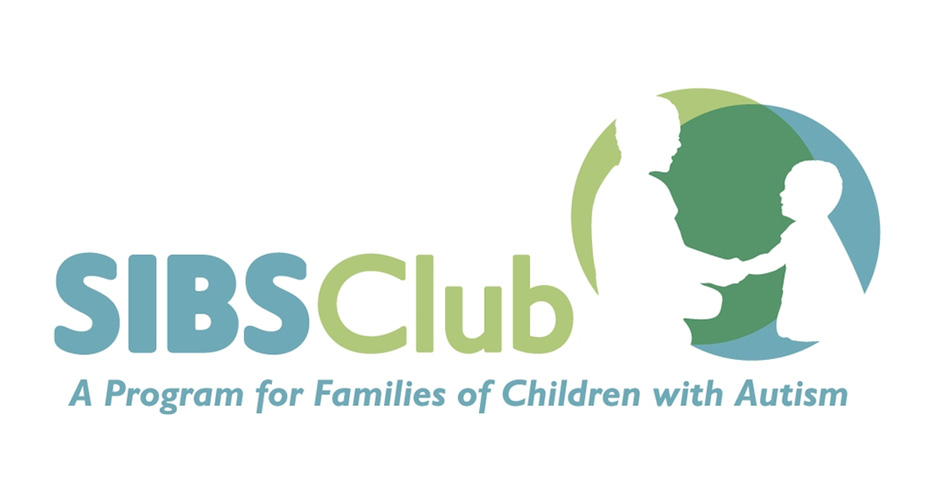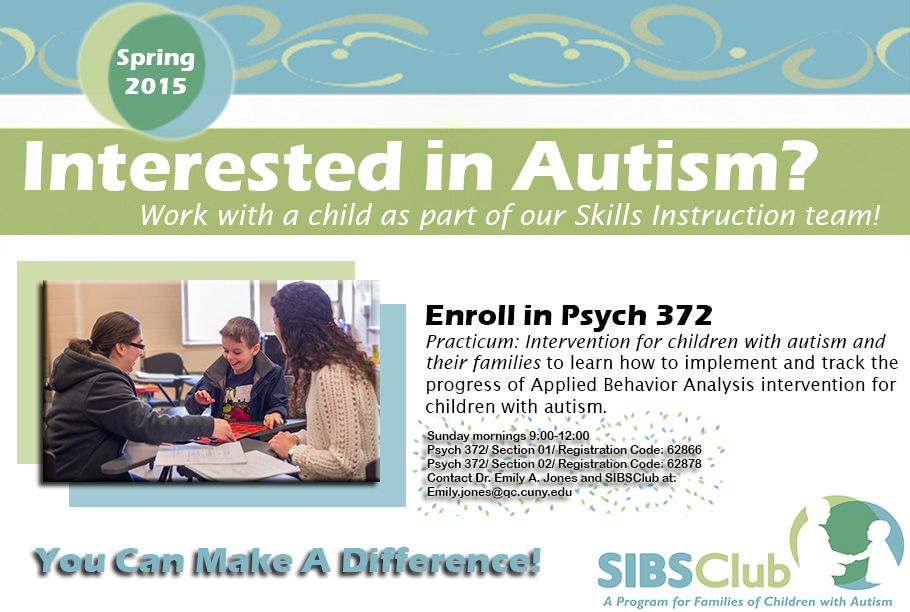Research
At SIBS Club we are dedicated to:
- providing a community program for children with autism and their families that is based on empirically supported interventions and
- helping to contribute to a better understanding of effective interventions that address the entire family system.
Autism affects the entire family and, in turn, the family system affects outcomes for individuals with autism. Families include parents and siblings who may each present with their own adjustment and skill needs. Each family member plays a unique and critical role throughout the life of an individual diagnosed with autism.
One focus of SIBS Club is on siblings. Typical siblings’ overall adjustment and skills in facilitating interaction with their brothers and sisters with autism may be impaired. There is a plethora of research on strategies to improve outcomes for children with autism spectrum disorders (ASD), but there is very little research on ways to improve the mental health and skill of their siblings and the sibling relationship.
Addressing the needs of typical siblings may result in improvements in typical sibling adjustment and the sibling relationship, increased learning and community opportunities for children with ASD, and increased sibling support and advocacy across the lifespan that improves quality of life for the entire family.
At SIBS Club we are trying to determine how best to address the needs of siblings and improve the sibling relationship. In a recent study (Kryzak, Cengher, Feeley, Fienup, & Jones, 2015), we began to show how a support group for siblings positively effects sibling adjustment and sibling interactions. Sibling support groups involve meetings of siblings of children with an identified disability led by a counselor who engages the group in discussion and activities to improve disability knowledge, coping skills, and adjustment, as well as create a peer support network. We found positive effects of sibling participation in a support group on:
- social-emotional functioning of siblings,
- sibling peer network, and
- direct observation measures of the length of siblings interactions.
This study was part of a larger program of research focused on families of children with autism. As part of that program of research we have also been developing other approaches to address sibling needs and the sibling relationship. We are continuing to examine different ways to best support siblings, the sibling relationship, and the entire family system so that we can continue to improve the services available to families and the outcomes possible for learners with autism.
FOR
STUDENTS
If you are a student interested in assisting with any of our research projects, please fill out the RA application below and email it to SIBSClub@qc.cuny.edu
FOR
FAMILIES
If you are interested in having your children participate in Research, below are a list of studies affiliated with SIBS Club or DDLab
- Albert Einstein College of Medicine
- Receive Autism Diagnostic testing
- Receive an Assessment of Functional Skills and Sensory Behaviors
- Study uses EEG to observe brain activity
- Participants will be randomly selected to receive 30 sessions of:
- Sensory Integration Therapy
- Behavioral Intervention
- Participants will be compensated
- Social-Communication Intervention
- Is your child between 1.5 and 4 years old?
- Your child will be taught to Gaze Shift in different social-communicative contexts
- Joint Attention
- Requesting
- Social Referencing





